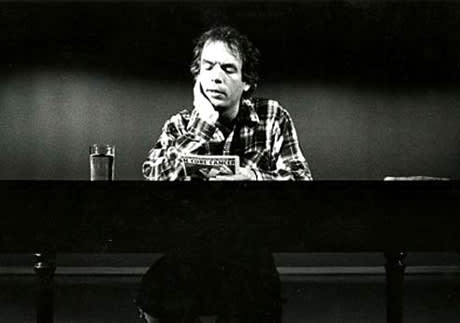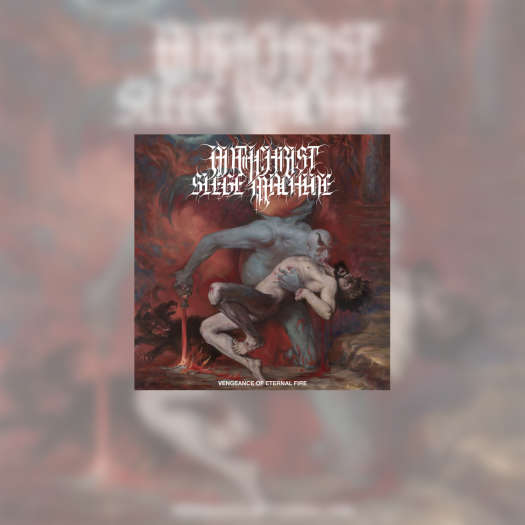Spalding Gray could never be accused of not speaking up. The sometimes actor turned his life into a series of acclaimed monologues, such as Swimming To Cambodia, his story of appearing in ― and the behind-the-scenes making of ― the 1984 film The Killing Fields. The intense subject matter, which explored the horrors perpetrated by the Khmer Rouge in Cambodia, was balanced in Gray's monologue with crazy, personal adventures, alternately hilarious and tragic.
That balance was one Gray maintained throughout 19 different monologues over his extensive career: he chronicled writing (Monster In A Box), health (Gray's Anatomy) and his own life. Several were made into feature films by such directors as Nick Broomfield (Kurt & Courtney), Jonathan Demme (The Silence of the Lambs) and Steven Soderbergh. It's Soderbergh who's taken on the task of constructing And Everything Is Going to Be Fine, splicing together archival monologues, interview footage and even some home movies to tell Gray's story anew.
Fans of Gray's work will find delicious morsels of personal insight ― interactions with his father on video, stories of his mother's suicide when Gray was a young man, clips of early monologues performed on stage ― but those coming to his work for the first time with And Everything Is Going Fine will be ultimately frustrated.
This is not a documentary that tells Gray's story. It doesn't explore the impact of his work; it provides no context for his influence or lasting legacy ― it contains no outside voices whatsoever. For fans, thematic threads that resonate throughout his work become sharper. For newcomers, the constant talk of suicide, which was a theme that ran throughout his career, not just in discussions of his mother, might seem morbid, especially since the documentary fails to note that Gray, in fact, ended his life in 2004.
That the film leaves fans to bring that knowledge to the movie might make And Everything Is Going Fine a purer expression of Gray's philosophy ― that there's nothing here that doesn't come from his mouth and brain ― but as a means to open up his work to a new audience, it's alienating.
And I don't think Spalding Gray would be comfortable deliberately obfuscating his work from an audience who might enjoy it, but can't find a door in.
(IFC)That balance was one Gray maintained throughout 19 different monologues over his extensive career: he chronicled writing (Monster In A Box), health (Gray's Anatomy) and his own life. Several were made into feature films by such directors as Nick Broomfield (Kurt & Courtney), Jonathan Demme (The Silence of the Lambs) and Steven Soderbergh. It's Soderbergh who's taken on the task of constructing And Everything Is Going to Be Fine, splicing together archival monologues, interview footage and even some home movies to tell Gray's story anew.
Fans of Gray's work will find delicious morsels of personal insight ― interactions with his father on video, stories of his mother's suicide when Gray was a young man, clips of early monologues performed on stage ― but those coming to his work for the first time with And Everything Is Going Fine will be ultimately frustrated.
This is not a documentary that tells Gray's story. It doesn't explore the impact of his work; it provides no context for his influence or lasting legacy ― it contains no outside voices whatsoever. For fans, thematic threads that resonate throughout his work become sharper. For newcomers, the constant talk of suicide, which was a theme that ran throughout his career, not just in discussions of his mother, might seem morbid, especially since the documentary fails to note that Gray, in fact, ended his life in 2004.
That the film leaves fans to bring that knowledge to the movie might make And Everything Is Going Fine a purer expression of Gray's philosophy ― that there's nothing here that doesn't come from his mouth and brain ― but as a means to open up his work to a new audience, it's alienating.
And I don't think Spalding Gray would be comfortable deliberately obfuscating his work from an audience who might enjoy it, but can't find a door in.




